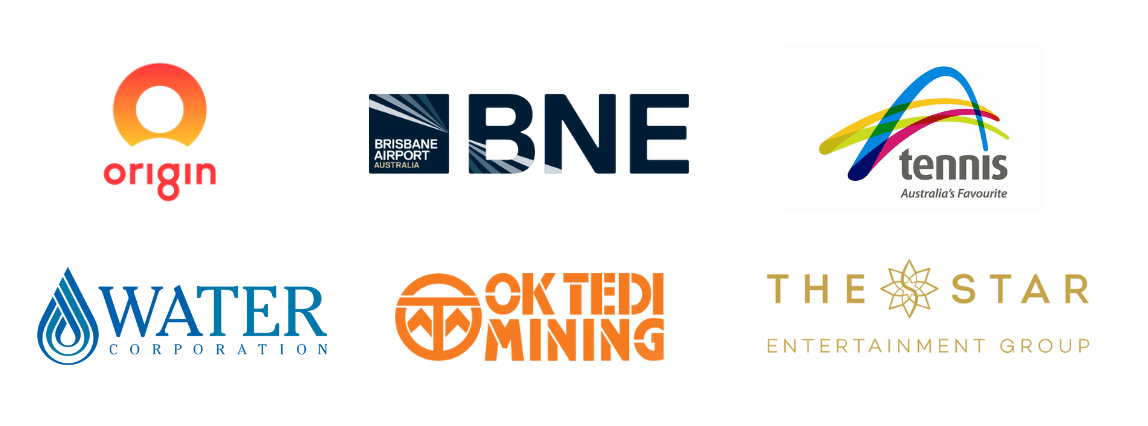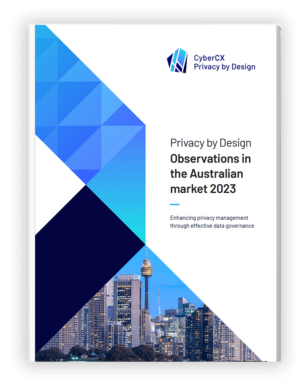Privacy Advisory
Improve the opportunities personal information can bring to your business while managing privacy risk with expert guidance from our team of dedicated and experienced privacy professionals.

Build a sustainable and socially responsible data-driven business


Understand your privacy risk
Understanding the personal information you process, your privacy obligations and your business objectives are key to the effective management of privacy risk.

Comply with privacy obligations
Develop governance, process and technical controls to meet applicable industry, state, federal and global compliance requirements.

Become a trusted business
How you manage privacy will increasingly become a pillar of trust with your staff, customers and the general public.

Privacy Builds Trust.
Trust Builds Opportunity.
Management of privacy risk and obligations is increasingly being recognised by leading businesses as key to building sustainable and trusted market offerings and being an employer of choice. In the digital age, reputation is key and how you manage personal information can make or break your opportunities to grow.
CyberCX has experienced privacy practitioners who understand data, the opportunities it brings and the regulatory and social boundaries around its use. As data holdings grow exponentially and as business relies on a more complex web of service providers, understanding what is possible with data and what is required to manage privacy risk, means that intimate and deep knowledge of privacy is essential.
From building a strategy through to controls that will help you manage and monitor your risk, our industry leading professionals will bring to your organisation decades of experience with some of Australia’s and the world’s largest corporations.



Our solutions

Strategy
Understand your obligations and the optimal way to address these for your business.
- Obligations mapping
- Enterprise risk management strategy
- Operating model development
- Data ethics guardrails
- Consumer Data Right readiness

Governance and control development
Convert your privacy obligations and strategy into tailor made solutions for your organisation.
- Internal and external privacy policy drafting
- Risk control design
- Privacy training and learning needs analysis
- Personal information retention and destruction schedules
- Record of processing development

Assessing your Risk
Whether it be at the enterprise or initiative level, ongoing privacy risk assessment is a key control for managing privacy risk.
- Privacy Impact Assessment (PIA) and Data Protection Impact Assessment (DPIA)
- Enterprise or Divisional Privacy
- Capability and Gap Assessments
- Privacy Audit
- Third party privacy risk assessment and advisory
- Privacy Act 1988, Spam Act 2003 and GDPR assessment and compliance
![]()
Breach readiness and response
Privacy breaches are unfortunately an inevitable part of business which require proactive and reactive solutions.
- Notifiable Data Breach (NDB) response and guidance
- Personal Information Discovery
- Management of regulatory reporting
- Post privacy breach review
- Data breach response planning and training

Privacy Officer as a Service
Real privacy skills and experience are hard to find and retain. For small and medium sized organisations, the challenge can often be to justify full time privacy experts, whilst large enterprises can find it challenging to supplement in-house capabilities.
CyberCX delivers senior-level experienced executives on an as needed basis to manage BAU privacy risk or to uplift privacy capabilities at critical moments of heightened privacy risk. These critical moments may include mergers and acquisitions, critical digital transformations, or responding to a privacy incident.
Our Privacy Officer as a Service practitioners have years of experience dealing with the Office of the Australian Information Commissioner (OAIC) and other regulators around the world and can advise you on how to best address your regulatory and data ethics requirements.

Ready to get started?
Find out how CyberCX can help protect personal information, manage privacy and deliver business growth.


Australian privacy law reform
Proposed changes to Australian privacy laws will require organisations to undertake significant uplift in data governance, privacy risk and information security management.

Trusted cyber security partner to leading Australian organisations.


Why Privacy Advisory with CyberCX?

Practical, real world solutions
We understand privacy obligations intimately and know how to tailor practical solutions for all organisation types.

Qualified practitioners
CyberCX is a member of the International Association of Privacy Professionals. Our privacy experts hold peak privacy industry body accreditation, and work alongside a network of 1,400 cyber security professionals to address the full-suite of privacy needs.

International experience, local focus
Our privacy practitioners have real, operational and dedicated privacy experience in some of the world’s largest companies in Australia, New Zealand, Europe, the Americas and across APAC.

Ready to get started?
Find out how CyberCX can help protect personal information, manage privacy and deliver business growth.


Australia’s trusted
cyber security and cloud partner
Expertise at scale
More than 1,400 cyber security and cloud professionals delivering solutions to our customers.
Eyes on glass 24/7
Continuous monitoring of your network across our 9 advanced security operations centres globally.
Help when you need it
The region’s largest team of incident responders handle over 250 cyber breaches per year.
Assessing your needs
Industry-leading experts conduct more than 500 baseline security assessments per year.
Providing credible assurance
Our exceptional team of ethical hackers conducts over 3,000 penetration tests per year.
Training the next generation
The CyberCX Academy is training 500 cyber professionals over the next three years.
Cyber Security Services
End-to-end services covering every challenge throughout your cyber security and transformation journey

Ready to get started?
Find out how CyberCX can help your organisation manage risk, respond to incidents and build cyber resilience.


